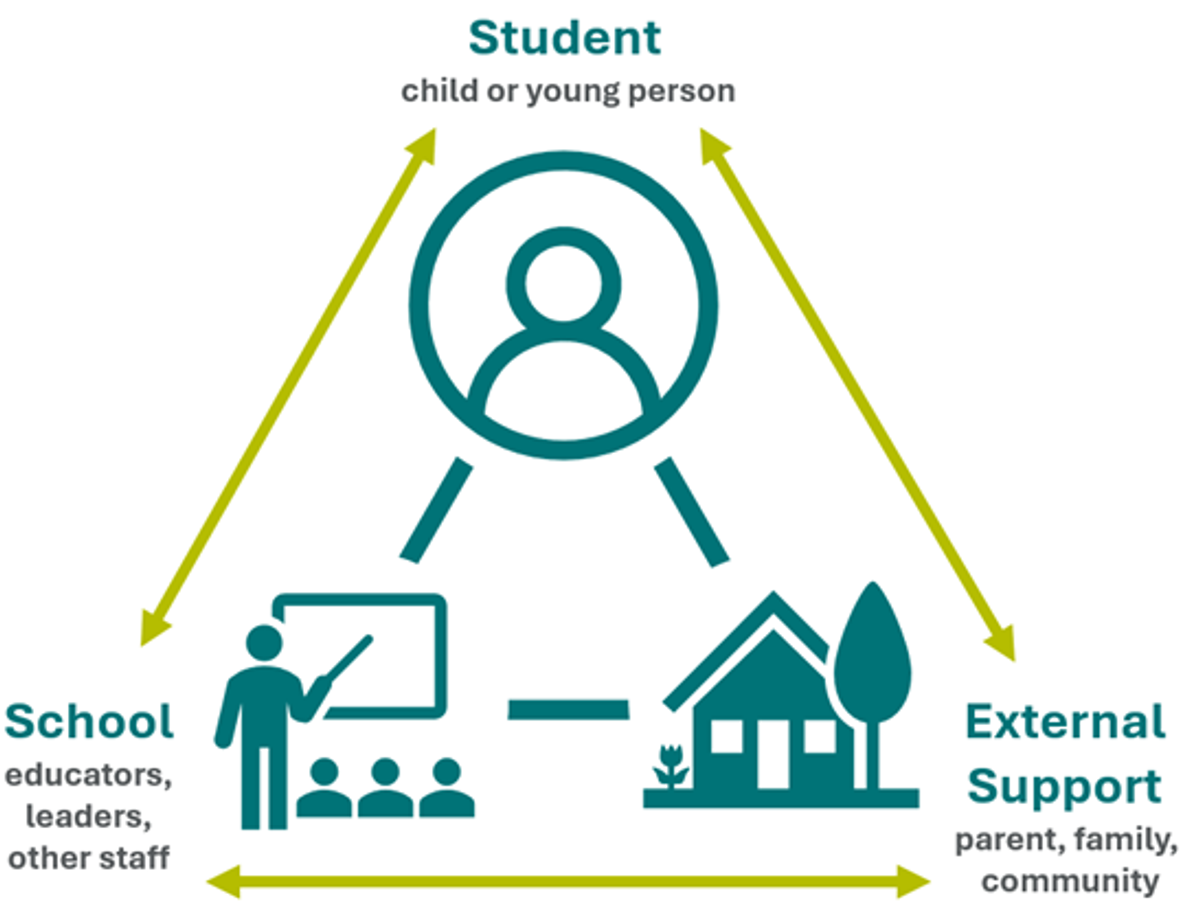News from the Inclusion team

Connections for school aged children are essential for healthy development; physically, emotionally and socially. There are many opportunities for school aged children to make important connections through their school, families, friends and communities.
Strong social connections are crucial for school-aged children so they can foster a sense of belonging, build confidence, and enhance their overall well-being. These connections support emotional and social development, improve communication, and help children navigate the complexities of school and social life.
Warm, stable and responsive environments with family is fundamental for children to feel safe, secure, comfortable and confident. When children start school it is oftentimes their first long period away from home and they are expected to be more independent. Children love becoming independent but they still need their caregivers' love and support when at home, particularly when they need to help process any events or social issues that may occur at school.
The connection with your child at home can be initiated by showing an interest in their day, for example, following up on a statement or story your child shares, “what happened next?”, making the time to share an interest or game, or maybe asking to hear them read. School aged children can often feel some big emotions and can be tired or overwhelmed with their learning at school that being able to tune into your child and help them process through meaningful discussion and loving support is indispensable.
Children’s sense of belonging is developed through their connections with friends. Friends become an important part of their school environment and these relationships will help them develop their social skills. Connecting in the playground helps children learn vital skills of cooperation, turn-taking and sharing. Some children find it hard to make friends so it is important for families to be aware of this and help navigate their child through establishing connections, maybe setting up a playdate or a play in a park or encouraging your child to introduce themselves to a new friend. Strong friendships can enhance learning, help develop and understand empathy and help identify and work through different emotions.
Connections in the community help children build a positive identity, be exposed to diverse perspectives, learn about being inclusive and promote social and emotional awareness. Community can include being part of after school curricular activities, sporting organisations, or accessing local resources like libraries. A supportive community can offer access to resources like educational programs, recreational activities and mentorship, which can broaden children’s horizons and help them develop their potential.

